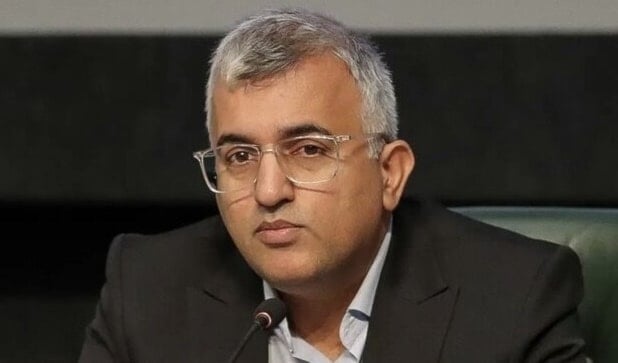Iran adopts active economic response to illegal snapback sanctions
Iran's Deputy Foreign Minister Hamid Ghanbari says Tehran does not recognize the snapback of UN sanctions by European powers and is actively working to reduce their impact.
-

Hamid Ghanbari, Iran's Deputy Foreign Minister for Economic Diplomacy, in an undated photo (Mehr)
Hamid Ghanbari, Iran’s Deputy Foreign Minister for Economic Diplomacy, announced on Sunday that Iran has taken concrete measures in response to the snapback of UN sanctions triggered by the European troika following the termination of UNSC Resolution 2231.
Speaking at a seminar in Tehran, Ghanbari reaffirmed that Tehran does not recognize the legitimacy of the sanctions reimposed by the European signatories of the Joint Comprehensive Plan of Action (JCPOA), slamming the move as illegal and politically motivated.
Ghanbari stated that Iran has adopted a new approach in dealing with sanctions. “Experience has shown us over the recent years that the effects of sanctions are real,” he said, “and therefore the country's official policy has changed towards active tackling of the sanctions and holding negotiations to eliminate their effects.”
According to the deputy minister, the new strategy includes identifying and implementing practical solutions aimed at reducing the impact of sanctions on trade and the livelihood of the Iranian people.
The senior diplomat emphasized the importance of economic strength in diplomatic negotiations. “If the domestic economy is strong, Iran will have the upper hand at the negotiating table,” Ghanbari noted, highlighting the country’s strategy of leveraging economic stability as a means to counter external pressures.
Iran has repeatedly criticized the European parties for failing to meet their obligations under the JCPOA and for aligning with US-led unilateral measures, which Tehran slams as a violation of international law and diplomatic commitments.
Iran confirms UN Resolution 2231 expired, condemns US, E3 violation
In a letter addressed to the UN Secretary-General and the Presidency of the Security Council, Iranian Foreign Minister Abbas Araghchi affirmed that UN Security Council Resolution 2231 has expired and fully ceased to be in effect as of today, in accordance with its explicit provisions.
Iran's top diplomat stated that the E3’s attempt to activate the snapback mechanism by directly resorting to the UN Security Council disregarded the dispute settlement process stipulated in the nuclear agreement, stressing that the attempt suffers from procedural flaws and lacks any legal validity or authority.
"No action taken in violation of UN Security Council Resolution 2231 can create any legal obligation upon member states," Araghchi affirmed, emphasizing that any claim to "revive" or "reimpose" expired resolutions is null and void, lacking legal basis and producing no binding effect.
Araghchi also asserted that Resolution 2231 does not grant the Secretary-General or the UN Secretariat any authority or mandate to determine, announce, reactivate, or reinstate resolutions that have expired under operative paragraph 8.
He added that any such action would exceed the legal authority conferred by the UN Charter and contradict the purely administrative and neutral role of the Secretariat. "Any ‘notification of snapback activation’ or 'confirmation' issued by the Secretariat is legally void and undermines the credibility of the organization," he wrote.
Read more: Non-aligned movement backs Iran against E3 snapback move

 3 Min Read
3 Min Read








